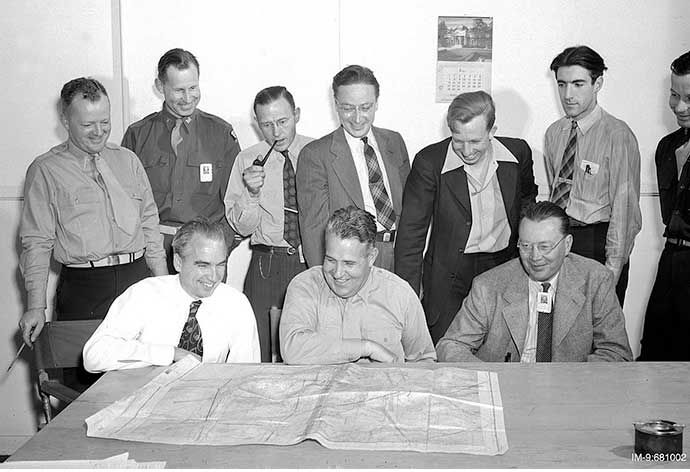The Manhattan Project Collaborators Who Objected to the Use of Atomic Weapons

One of the last surviving scientists who worked on the Manhattan Project, Abraham Zarem, recently died at the age of 106. The research and development project employed engineers like Zarem to put into practice some of the theories of the world’s top physicists in order to create the first atomic bomb. Although Zarem appeared to have no remorse over working on a project that would result in two devastating bombings of Japan during World War II, some of his collaborators would go on to regret their involvement in the creation of such a destructive weapon. They included J Robert Oppenheimer, who, despite being known as the father of the atomic bomb, discouraged the US government from bombing Hiroshima and Nagasaki. In the end, Truman’s decision to go ahead with the attacks was largely supported by politicians, military leaders and scientists, but some, like Oppenheimer, had serious misgivings about the results of their work.
Advice Against the Using the Bomb
As well as providing a wider understanding of the program as a whole, reading books about the Manhattan Project offers deeper insights into the thoughts of its collaborators. The book ‘Brighter than a thousand Suns’ reveals how some of the scientists behind the research and development of atomic weapons tried to prevent its eventual use. One such attempt occurred two months before the bombings in Japan, when a report drawn up by a committee of scientists led by the physicist James Franck was presented to Truman. The Franck Report detailed their misgivings about using such destructive power and, after the war, was published by the Bulletin of the Atomic Scientists.
Further Dissent from Prominent Scientists
At the project’s University of Chicago base, another group of scientists against the use of atomic weapons expressed a desire to meet with Truman in order to persuade him not to use the bomb. Once the war ended, they also believed America should share its secret atomic developments with other countries. They were rebuffed by the secretary of state, James Byrnes, who never even passed their concerns on to Truman as he felt that they had no real understanding of the politics involved.
America’s Corporations Became Reluctant Partners
The military and scientific communities involved in the Manhattan Project needed the help of large corporations in order to make the science behind atomic weapons a reality. Even though they were already busy fulfilling contracts for the war, several prominent companies including Dupont, famous for creating nylon in the 1930s, reluctantly became involved with delivering the large amounts of uranium and plutonium needed to create atomic bombs. Dupont were wary of being seen as ‘war profiteers’ and so handed over all patents to the government and refused to be paid more than one dollar for their work.
While the dropping of atomic bombs created as a result of the Manhattan Project was largely supported at the time, some very prominent scientists and large corporations expressed their concerns over the development and use of such destructive weapons.
 >
>